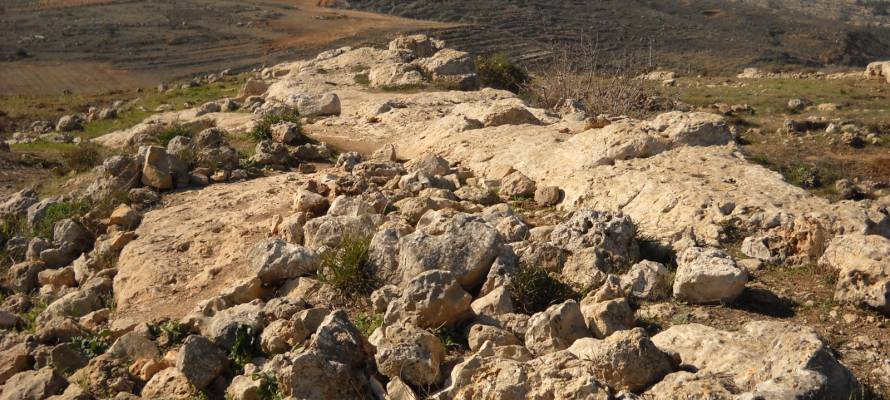
Shiloh never had grand palaces, nor is it surrounded by massive walls. Yet it served as one of the most important spiritual and political centers for nearly 400 years.
What city with grand palaces and powerful protection walls is considered of major importance? Jerusalem, of course! Its importance in the ancient world is recognized by all. Shiloh, on the other hand, never had grand palaces, nor is it surrounded by enormous walls, and yet it served as one of the most important spiritual and political centers of Judaism for nearly 400 years. Its historical significance to the Jewish people is undeniable.
When the Jewish people entered the Land of Israel after 40 years of wandering in the desert, they needed a place to park the Tabernacle. The Tabernacle was the portable Temple that accompanied the Jews in the wilderness as they moved from place to place. In the wilderness the Tabernacle stood at the center of the encampments of the twelve tribes. It was a representation of Mount Sinai and the idea that our lives revolving around God and the Torah.
After the Jewish People’s entry into the land, they established Gilgal as their center. Not long afterwards, the Tabernacle was erected in Shiloh in the territory of the tribe of Ephraim, the home tribe of Joshua, son of Nun, who led them after the death of Moses.
Shiloh is about a 45-minute drive from Jerusalem. Along the way you will pass or be in the area of numerous biblical sites. Anatot, which is most famous as the biblical home of the prophet Jeremiah, is in the vicinity. You will also pass Michmash, which is known for a battle waged between the Philistines and Jonathan, son of King Saul, who was able to defeat the enemy by discovering a secret path around the town and flanking them (See 1 Samuel 13). You will also pass a place that some archaeologists identify as Ai, which was the second town captured in the land of Canaan by the Israelites (See Joshua 7).
When you arrive at the ancient Tel Shiloh, you will enter the site through the welcome center where you can get a light lunch and meet some of the locals who workthere. The modern-day town of Shiloh is just above the ancient site and has a population of close to 3,000.
When you leave the welcome center, follow the main path that leads you to the Tel (an ancient mound containing layers of civilizations from various periods). At the top is an interesting building that was opened recently. Inside, on the second floor, you can see an awesome film which is projected on to a glass wall. The technology allows one to superimpose the Tabernacle on the spot where most archaeologists agree is the site of the ancient Tabernacle. They have done a fabulous job, allowing the visitor to see what it must have looked like when the Tabernacle was standing there . On the first floor is a museum of actual finds made by archaeologists in Shiloh.
After leaving the building, you can make your way down to the site of the Tabernacle. It is a very emotional experience standing there—especially if you are familiar with all the Biblical stories that took place on that spot. It is in Shiloh that Hannah, who was childless, prayed for a child and God answered her prayers with a son whom she named Samuel. Samuel would become one of the greatest prophets ever. It is in Shiloh that the lots were drawn to divide up the Land of Israel among the tribes. It is in Shiloh where the grape harvest festival was held and where the tribe of Benjamin was reinstated and again allowed to marry within the other tribes. It is in Shiloh that the Ark of the Covenant stood and was taken to battle and lost to the Philistines. It was in Shiloh that the High Priest Eli died upon hearing that the Ark had been taken.
For nearly 400 years Shiloh was the capital of the Jewish people—this was the place where they all came on the three pilgrimage festivals (Passover, Shavuot and Sukkot) in order to bring offerings to God and to rejoice.
In addition to the visitors’ center and the site of the Tabernacle, the remains of other eras when Shiloh was inhabited could be seen. You can hear the echoes of a city that has fallen silent.
While the ancient Tel is an archaeological site, its spiritual descendant, the city of Jerusalem, is very much alive today. Ultimately Jerusalem would replace Shiloh and a permanent Temple will be built. Nevertheless, Shiloh remains deeply embedded in the hearts of the Jewish people as the home of the Tabernacle and a place rich with Jewish history.
By Moshe Rothchild, Licensed Tour Guide
